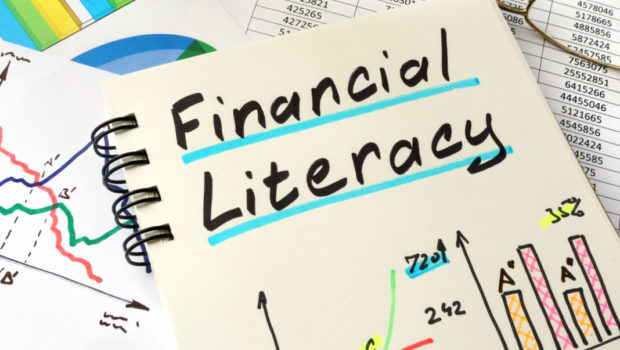Learn To Budget Smarter So That You Can Improve Your Lifestyle
Despite your stance on budgeting, you need to do it right to be financially successful. Managing your finances to get them in order and creating wealth requires deliberation, and your budget plan can help you do that. For a lot of individuals, the idea of budgeting is no fun, and some even view it as a punishment.
Sadly, the phrase budget plan has gotten itself a bad image. Your budget is a quantitative review and plan for how to spend your money. Budgeting ensures that you splurge with reason before the start of the new month.
The process of budgeting does not have to be tricky or convoluted. You simply have to establish a system that you find beneficial. And that includes the right budgetary methods and categories.
In this article, we’re going to learn all about financial planning and how much you can win by spending mindfully!
Determine Your Net Worth
As a preliminary step, it’s essential to determine your total wealth (net worth), i.e., the difference between what you own and how much you owe. To measure your total wealth, begin by listing your liabilities and assets.
Then deduct the financial obligations from the assets to reach your total wealth figure. Your total wealth depicts where you’re financially at that time, and it’s common for the figure to fluctuate over time.
Once you have made the adequate economic forecasts, deduct your expenditures from your earnings. If you have funds leftover after household expenses, you now have an excess, and so you can determine how you want to spend, invest, or save your money.
Manage Lifestyle Inflation
Most people are going to spend more if they can afford it. As people move forward in their professional lives and earn more money, there tends to be a marked and corresponding rise in their general spending, something known as lifestyle inflation.
Even if you are able to pay your expenses, this phenomenon can be detrimental to you in the long run since it constrains your capacity to create wealth. Every additional penny you splurge means lesser wealth later.
Spend Mindfully
As long as you don’t have an enormous abundance of money, it is in your best interests to be conscious of your needs and wants, so that you can make healthy decisions about expenses. Needs are basic amenities an individual requires to survive, such as food, shelter, clothing, health care, etc.
Alternatively, wants are items that you’d like to possess but don’t necessarily need to survive. Your basic requirements should be taken very seriously in your financial plan.
Only when your requirements have been satisfied should you apportion any disposable income to your wants. If you have funds leftover every month, you can also save it all.
Create a Budget Buffer
Set aside a small surplus of cash for unforeseen bills for a month and classify it as a miscellaneous category in your financial plan. This way, if something unaccounted for were to happen, you can contain it without having to dip into funds set aside for different scenarios.
Create accurate accounting records of expenses that often end up in this bracket. Ultimately, you may also want to create a separate position for it on the budget roster.
Ditch Your Credit Cards
If you’re that dedicated to adhering to the spending plan and avoiding debt, you ought to abandon your credit cards altogether. Stop using them entirely and get them out of your existence.
Not possessing a credit card means no debt, no more minimum monthly expenses to add to the financial plan, no burden on premiums or interest rates, and far less stress and anxiety. In its place, use your debit card and get rid of your credit cards for good.
With a debit card, the money goes from your bank account’s personal savings and you are charged zero interest.
Start Saving Early
It has been said that one is never too late to begin saving for the future. While the statement holds true, it is better to start sooner than later as it holds you in good stead in your retirement years. This is due to the power of the compounding process.
Compounding includes investing your earnings again and again and is most remunerative when done over time. The longer the profits are invested, the higher the investment’s value and the better your earnings will be.
Use Cash for Specific Categories
If you are repeatedly being a speedster and are splurging your disposable income, cash out these budget sections and utilise an envelope system to hold yourself responsible. Simply go to the bank and then get the money you’ve earmarked for that section and avoid spending as soon as the money for that section runs out.
Try an Online Budget Tool
If you don’t have a thing for pen, paper, or spreadsheets, you can avail of a budgetary control tool. You can start concentrating on the planning process and keep track of your expenses, all from your smartphone! What’s more, you can sync up your financial plan with your partner as well!
Maintain an Emergency Fund
Your emergency savings are assets or money that you have prematurely set aside for emergencies. The fund is to help you pay for stuff that would not usually have been included in your financial plan.
It could also allow you to pay for unanticipated and unexpected expenses, such as relocating to a new place, medical emergency, etc. if your income is interrupted. This way, you can avoid taking loans for moving house or medical emergencies too.
In the unpredictable economic situation of contemporary times, most individuals must intend to save at least six months’ value of daily expenses. Making this a standard feature of your financial plan is the best way to guarantee emergency savings so that you don’t spend that money flippantly.
Be Content and Quit Comparisons
You’ve got a lot more than you notice. Don’t start comparing your circumstance to someone else’s.
The comparative analysis would not only deprive you of your happiness but also of your income. Continue pushing and doing what’s right for you according to your situation.
Conclusion
Subjective budgeting is an excellent practice to achieve economic security. However, it’s essential to consider the whole picture and build up habits such as those mentioned above to help you make better financial choices. Personal budgeting is an excellent practice for long-term financial success.

















